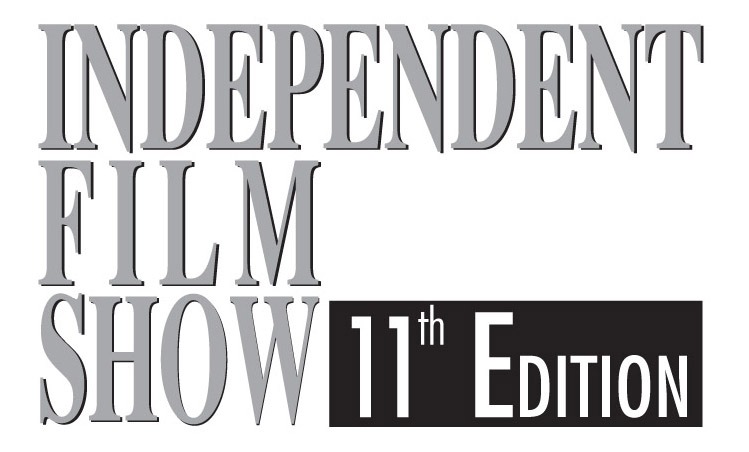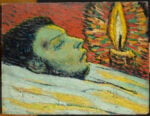Independent Film Show 2011

L’Independent Film Show continua a focalizzare l’attenzione su quegli artisti che sfuggono le convenzioni e trasgrediscono, sovvertono, le regole e le strutture del cinema di sistema. Questi film/video-makers si preoccupano maggiormente di questioni percettive, di aspetti fenomenologici legati all’esperienza filmica e, al posto di una risposta emotiva relativamente controllata, creano una rappresentazione alternativa del visibile.
Comunicato stampa
INDEPENDENT FILM SHOW 2011
17 - 18 - 19 novembre 2011
Fondazione Morra Palazzo Ruffo di Bagnara Piazza Dante, 89 Napoli)
giovedì 17 novembre WERNER NEKES ore 20:00
venerdì 18 novembre VISUAL PERCEPTIONS ore 20:00
sabato 19 novembre SEXUALITY ore 19:30
a cura di Raffaella Morra
L’Independent Film Show continua a focalizzare l’attenzione su quegli artisti che sfuggono le convenzioni e trasgrediscono, sovvertono, le regole e le strutture del cinema di sistema. Questi film/video-makers si preoccupano maggiormente di questioni percettive, di aspetti fenomenologici legati all’esperienza filmica e, al posto di una risposta emotiva relativamente controllata, creano una rappresentazione alternativa del visibile che, seppur preordinata nella natura, sequenza e tempo, si costruisce all’interno nel nostro sistema nervoso, seguendo un’estrema libertà di interpretazione.
Questi tre programmi rivelano delle autentiche essenze del visibile, raggiunte attraverso uno studio profondo dell’apparato cinematografico e delle possibili raffigurazioni prodotte nel complesso gioco di interazioni con lo spettatore, invitato a partecipare ad un’avventura della percezione, liberando la mente dai preconcetti e dalle classificazioni.
Werner Nekes definisce il cinema come la differenza tra due fotogrammi e in particolare il lavoro che il cervello compie nel produrre la fusione di questi frames. Il kine è la più piccola particella del film, un costrutto della relazione spazio/tempo, e conserva in se due differenti segmenti temporali a sua volta associati al seguente fotogramma attraverso un processo di memorizzazione.
Visual Perceptions rappresenta un viaggio introspettivo all’interno del cinema della mente, cioè quei films che evocano stati alternativi di percezione. Alcuni mostrano l’avviso ad astenersi dalla visione qualora ci siano problemi di epilessia o sintomi lievi di malessere mentale. In particolare la tecnica del flickering, che coinvolge tre stati di un unico processo, cioè i singoli fotogrammi, la conversione proiettiva di questi stessi in impulsi luminosi discontinui e la risposta neurale dell’occhio e della mente a questi stimoli, può generare effetti diametralmente opposti quali violenti shocks oppure stati percettivi profondi simili all’allucinazione e alla meditazione. Il cinema sperimentale nella sua intima fusione di metodo e messaggio ottiene quello stato di rinnovamento immaginifico che incrementa l’abilità del vedere.
Sexuality ritrova quella libertà di espressione tipica dei film/video-makers indipendenti, la capacità di affrontare senza tabù ogni aspetto dell’umano; una conquista ottenuta al costo di attacchi violenti della censura ed intricati processi, con però numerose assoluzioni per la non sussistenza del reato. Una sessualità naturale e sensibile, lontana dall’esibizione del piacere forzato dei films hard-core, che si mostra allo sguardo eliminando le barriere del pudore.
Anche per questa edizione è possibile consultare le schede dei films sul web-site www.em-arts.org e sarà realizzato il catalogo italiano/inglese con i testi di Raffaella Morra e di Loredana Troise, e le schede dei 37 films e video in programma.
INDEPENDENT FILM SHOW 2011
November 17 - 18 - 19 2011
Fondazione Morra Palazzo Ruffo di Bagnara Piazza Dante, 89 Napoli)
Thursday november 17 WERNER NEKES h. 08:00 pm
Friday november 18 VISUAL PERCEPTIONS h. 08:00 pm
Saturday november 19 SEXUALITY h. 07:30 pm
curated by Raffaella Morra
The Independent Film Show continues to focus on artists who shun convention and transgress, subverting the rules and structures of the film system. These film/video-makers are more concerned with questions of perception, the phenomenological aspects of the filmic experience, rather than a relatively controlled emotional response, they create an alternative representation of the visible, which, albeit pre-organised in terms of nature, sequence and time, is built up within our nervous system, with the utmost freedom of interpretation.
These three programs reveal true essences of the visible; they are reached through a profound analysis of what the cinema is and the images it can produce in the complex game of interaction with the audience, who are invited to take part in an adventure of perception, freeing the mind of preconceptions and classifications.
Werner Nekes defines cinema as the difference between two frames and in particular the work of the brain in bringing about the merging of these frames. The kine is the smallest particle of the film, a construct of the relationship between space and time, and encapsulates within it two different time segments which, in turn, are associated with the next frame in a process of memorisation.
Visual Perceptions is an introspective journey into the cinema of the mind, i.e., those films that evoke alternative states of perception. Some carry a warning to those suffering from epilepsy or mild symptoms of mental disturbance. The flicker technique, which involves three states of a single process, i.e., the individual frames, their conversion for projection into discontinuous light pulses and the neural response of the eye and the mind to these stimuli, can produce diametrically opposed effects such as violent shocks or profound states of perception such as hallucination or meditation. Experimental cinema in its intimate fusion of method and message achieves the state of renewal of the image that increases the ability to see.
Sexuality demonstrates that freedom of expression that characterises independent film/video-makers, the ability to address all that is human without taboos, a victory achieved at the cost of virulent censorship and drawn out trials often ending in acquittal with no case to answer. A natural sensitive and sexuality, far removed from the exhibition of the forced pleasure of hard-core, displayed before the eye of the audience dropping the barriers of modesty.
The website www.em-arts.org will be newly updated and a colour catalogue in English and Italian will be published with texts by Raffaella Morra, Loredana Troise, and details of all 37 films in the program.



